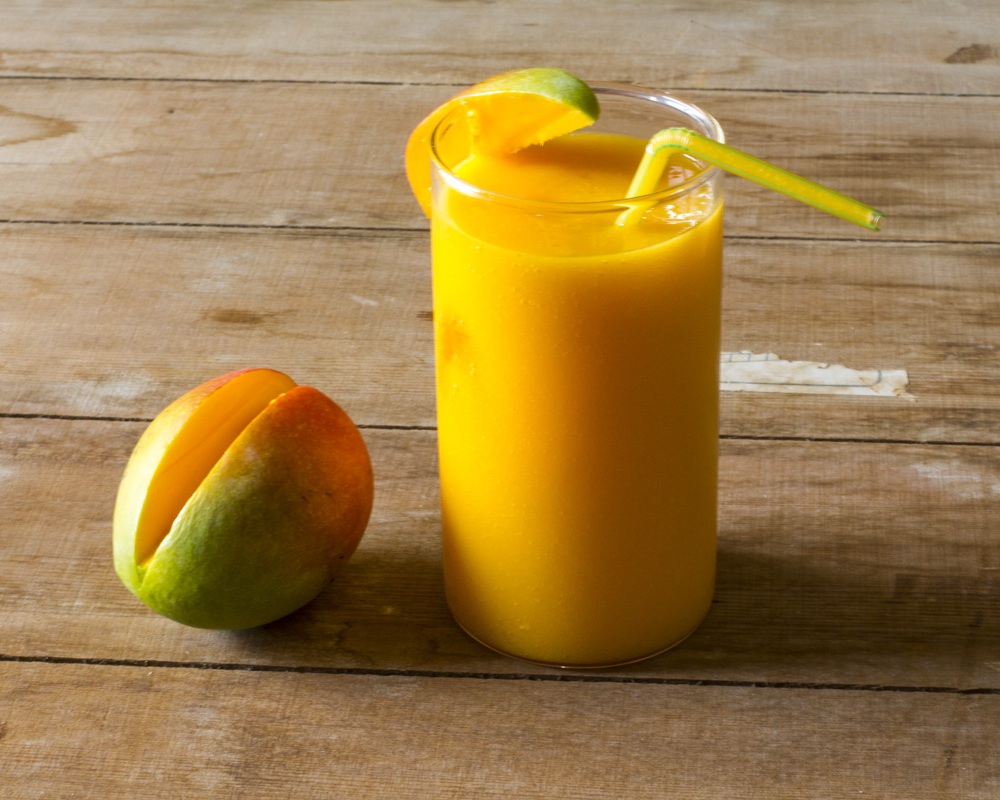
Fiction: Vocabulary for Fruit
The least awful day of my tenure at Jamba Juice was the day Clare McInerny ordered a mango smoothie.
It was a Friday night. Other seventeen-year-olds were watching movies at wholesome sleepovers, or giving blowjobs in basements. My father was lighting the Sabbath candles in his studio apartment, my mother watching sitcoms in the home we’d once all shared.
I was behind the counter in a starchy polo and a visor, my hair pulled into a ponytail per company policy. It was just me and Johann, a white man whose entire personality was having a mustache. A tinny pop song played overhead, something I’d still be getting stuck in my head years and years later.
Clare walked in wearing sweatpants and sandals. The fluorescent lights reflected against her honey-colored hair, tied in a loose bun. I was envious of women like her, whose beauty I found effortless. When I told that to my older cousin Nima, she said I needed to “decolonize my attractions.”
I wasn’t sure if Clare recognized me. We had French class together. We’d been learning vocabulary for fruit, and I knew she disliked watermelon. She scanned the menu above my head. “I’ll have a mango smoothie, please.”
I scooped the ingredients into an industrial-sized blender, watching Clare from my peripheral vision. It startled me when she spoke.
“Do people ever put quarters in these?” She gestured to a paper stand on the counter with slots for quarters, emblazoned with the words GIVE THE GIFT OF HOPE and a photo of a bald child. “Or do you take change from the register, so it doesn’t look sad?” She had to half-shout over the blender.
I turned it off and poured thick, bright yellow liquid into a plastic cup. “This lady comes every week and puts in a quarter.”
I snapped on the lid and imitated the woman. “Poor, sweet angels.” When Clare laughed, delight spread through me.
I didn’t tell her that the woman was my father’s girlfriend. That I read my father’s emails when he left his laptop open, that before my parents separated I followed him to the woman’s townhouse and saw them embrace under the oily light of a streetlamp. That, of course, my father had never mentioned her to me. That I was sure the woman knew who I was, because why else does an attractive thirtysomething drive ten miles to a gross smoothie chain and chat up the teenage cashier. That I never told my mother.
I handed Clare the sweating smoothie. She paid in cash and placed two quarters in the paper stand.
“For the angels.”
“I’ll tell them it was from you.”
She punctured the lid with a straw and I watched the smoothie work its way to her lips. I opened my mouth to say something, keep her near me a moment longer. Something innocuous, about the weather or our French teacher. Though I wanted to tell her about the look on my father’s face when I refused to accompany him to the Kol Nidre service, even though he knew I loved the haunting melody of the prayer, even though my whole life until then we’d shared that evening of absolution.
But Johann called my name from the back. He needed help getting a box of large cups from the top shelf.
The door tinkled when Clare left. She turned back. “See you Monday, Shirin,” she said. It was the only time she would say my name for years, until the first summer home from college, at the reunion bonfire, after my father and his girlfriend had their first child, the girlfriend and I never acknowledging our Jamba Juice encounters. And Clare would sidle up to me, Natural Light on her breath, and take my hand, and we would have sex in the back seat of her mother’s SUV that still smelled like new car, and she would breathe my name, “Shirin, Shirin, Shirin,” and even though all I’d consumed that night was beer and pretzels, on my tongue I would taste mango.
Maya Afilalo’s fiction has appeared in the anthology queerbook and her nonfiction has been published in The Pennsylvania Gazette. She is an MFA candidate in fiction at North Carolina State University.



